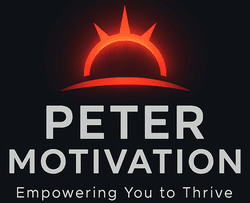Introduction: The Comfort Zone Trap 🛋️
Let’s be honest—most of us find comfort in the familiar. The same faces. The same settings. The same Friday night routine. It’s safe, predictable, and it feels like home. But what if that very safety net is what’s keeping us from creating the meaningful friendships we deeply crave?
In the world of human connection, friendships aren’t just discovered—they’re made. Often in places we least expect, with people we don’t yet know. This article explores the journey of navigating friendships by stepping outside of your comfort zone and embracing the unknown.
Why Comfort Zones Are So Tempting—and Limiting
Our comfort zone is the mental space where activities and behaviors fit a pattern and routine that minimizes stress and risk. It’s the emotional equivalent of autopilot. And while it’s essential for recovery and stability, it’s also the very place that can isolate us over time.
Staying in your comfort zone can lead to:
- Missed opportunities to meet new people
- A shrinking social circle
- Stagnation in personal growth
- A sense of loneliness—even when you’re not alone
A Moment of Realization: A Personal Story
I was once hanging out with a friend and we were discussing an upcoming event—a local mixer, nothing crazy. He asked me, “Hey, are you going?”
I shrugged and said, “Why would I go? I don’t know anyone there. None of them are any of my real friends.”
Without missing a beat, he replied:
“Yeah, that’s true. But by going to events like this is how you make excellent friends.”
That stuck with me.
I realized I had been waiting for good friendships to come find me, instead of putting myself in the spaces where those friendships could form.
The Psychology of Connection 🤝
Psychologists agree that social connection is a fundamental human need, just like food and shelter. Dr. Brené Brown, a research professor known for her work on vulnerability and connection, once said, “Connection is why we’re here.”
But meaningful connection often requires vulnerability, and vulnerability isn’t comfortable.
Why We Hold Back:
- Fear of rejection
- Social anxiety
- Past friendship trauma
- Fear of not fitting in
- Low self-worth
These fears are real—but they’re also beatable. And the only way through them is to challenge them.
Stepping Out: What It Looks Like
You don’t have to turn into a social butterfly overnight. Leaving your comfort zone looks different for everyone. Here are manageable ways to ease into new social environments:
1. Say Yes More Often
That event, dinner, or community meetup you’ve been invited to? Try saying “yes.” Even if it feels awkward. Especially if it feels awkward.
2. Go Alone, But Be Open
Some of the best connections happen when you’re not tethered to familiar faces. Going solo allows you to stay open to new people and new energy.
3. Set a Mini Goal
Give yourself a goal for each event—like talking to three new people, or asking someone what brought them there. Having a goal takes away the aimlessness and gives you focus.
4. Be Curious
Instead of stressing about being interesting, focus on being interested. Ask questions. Listen intently. Most people appreciate a good listener far more than a good talker.
What You Gain When You Leave the Comfort Zone 🌱
Here’s the upside of being a little uncomfortable:
- Broader social circles: One new friend can introduce you to dozens more.
- Higher confidence: Every small success builds social courage.
- Growth mindset: Discomfort fosters resilience and flexibility.
- Unexpected joy: Sometimes the best nights come from last-minute plans with new people.
Friendship is a dynamic process. You won’t always hit it off with everyone—but each new connection is a step toward finding your people.
Real Friendships Aren’t Always Instant—But They Begin Somewhere
A common myth is that real friends just “click” instantly. But many deep friendships actually start with mild awkwardness, small talk, and shared environments.
Think About It:
- The coworker who slowly became your best friend
- The gym buddy who turned into your weekend brunch pal
- The person you randomly sat next to at a workshop who’s now part of your circle
They all started with a first conversation. A first “hello.”
Friendships are formed in layers. You have to show up repeatedly for the layers to build.
If You Don’t Try, You Might Be Missing Out on Moments Like These:
- Laughing with someone who just gets your sense of humor
- Being invited to something that becomes your favorite yearly tradition
- Finding someone to call when life feels heavy
- Growing a support system that uplifts you when you forget how powerful you are
You deserve those moments. But they don’t happen behind closed doors or within tight social bubbles. They happen out there.
Navigating the “In-Between” Phase of Friendship
There’s a tough middle ground between being strangers and being real friends. That phase can be uncomfortable, full of polite conversation, uncertain vibes, and the constant wondering: Are we becoming friends or not?
Here’s how to navigate it:
- Keep showing up: Consistency builds familiarity, which leads to trust.
- Be a connector: Invite them to things, or introduce them to others.
- Share a bit more: Gradually open up. Vulnerability is the bridge to closeness.
- Don’t force it: Not every potential friend will turn into a best friend—and that’s okay.
Common Excuses—and How to Overcome Them
| Excuse | Reframe |
|---|---|
| “I don’t know anyone there.” | “That’s the perfect reason to go—so I can meet someone new.” |
| “I’m not good at small talk.” | “Small talk is just the beginning—it doesn’t have to be perfect.” |
| “What if I get rejected?” | “What if you don’t? And even if you do, it’s practice.” |
| “I’ll go next time.” | “Now is the best time—opportunities don’t always repeat.” |
Pro Tips for Building Friendships That Stick
- Follow up: Text them after you meet. “Hey, it was great talking to you—hope to see you again soon.”
- Make the next move: Don’t wait for others to reach out. Be the one who initiates plans.
- Be authentic: You don’t have to impress anyone. Just show up as you are.
- Give it time: Good friendships don’t happen overnight. Let it unfold naturally.
A Final Thought: You Deserve Connection
That night my friend challenged me with that simple truth—“By going to events like this is how you make excellent friends”—something shifted in me.
I started saying yes more. I went to things that made me nervous. I started trusting that good people were out there waiting to meet someone like me. And you know what?
They were.
You’re not meant to navigate life alone. And while it takes courage to open yourself up to new people, the payoff—real friendship—is worth every step.
Key Takeaways for Navigating Friendships:
✅ Comfort zones feel safe but can hold you back from real connection.
✅ Saying yes to new experiences opens doors to meaningful relationships.
✅ Even awkward moments can lead to lifelong friendships.
✅ Be intentional, stay consistent, and stay open.
✅ Great friends are often strangers you haven’t met yet.




Leave a Reply